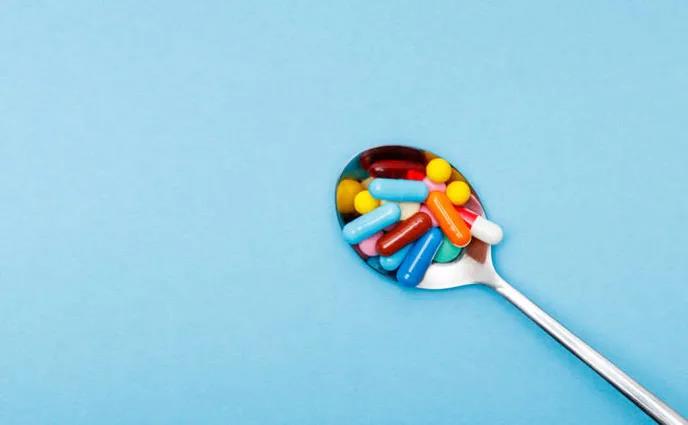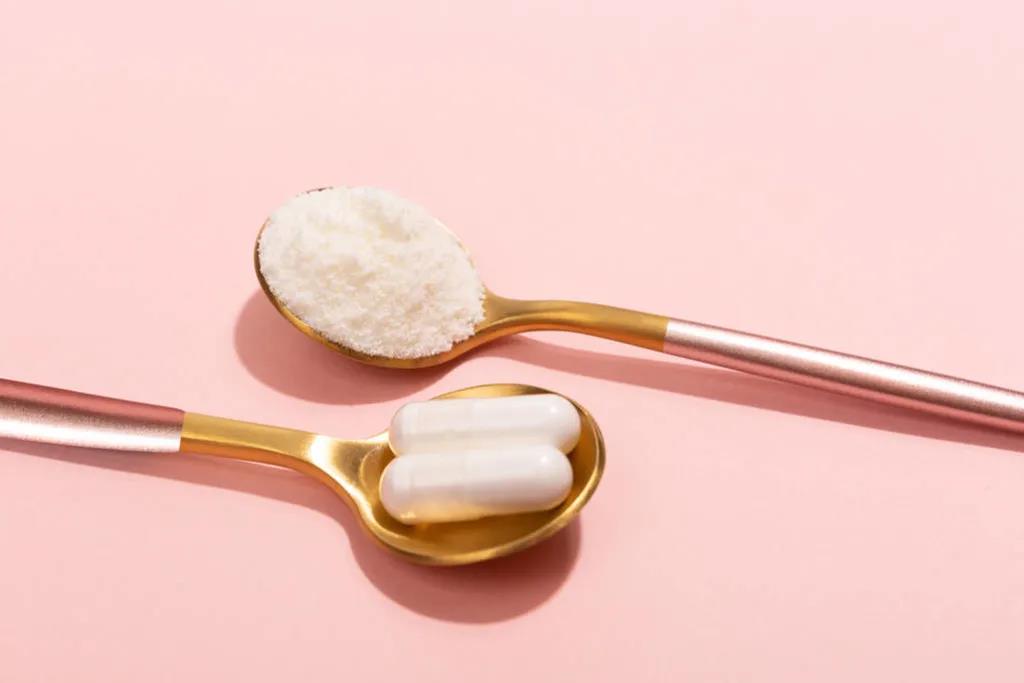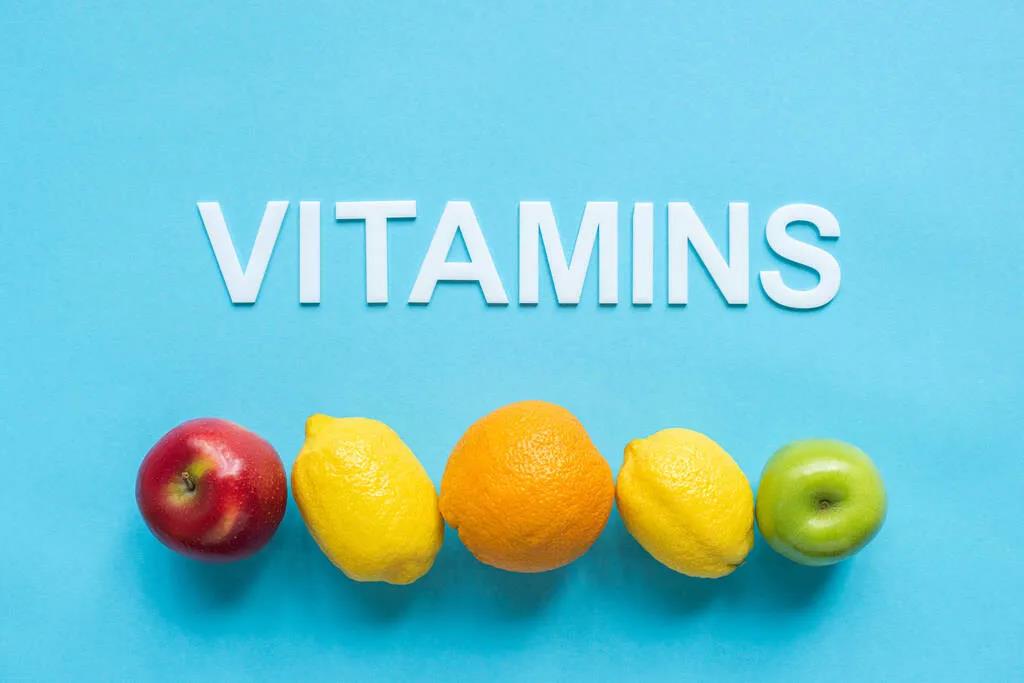
For people who pay attention to health preservation but are busy with their work, vitamin supplements seem to have become “a good medicine”. Some people even think that no matter whether they are lack or not, they can prevent diseases and make their bodies healthier.

However, a study recently published in the Journal of the American College of Cardiology shows that niacin (vitamin B3) and antioxidants (vitamin A, vitamin C and vitamin E) may increase the risk of death in healthy people. In other words, vitamin supplementation in healthy people may do more harm than good.
Is vitamin supplementation really healthy?
In daily life, a large number of people supplement vitamins. Data show that from 2014 to 2016, the proportion of total consumers of dietary supplements was 40%, of which 33% used it at least twice a week.
The online survey found that more than 70% of the respondents would “supplement vitamins in addition to the normal diet”, of which 70% did not supplement under the guidance of a nutritionist, but “if they feel they lack it, they will supplement it”, or “affected by advertising” and “follow everyone to supplement it”.
The reporter searched for “vitamins” on a shopping platform and found that the categories are very rich, including single vitamin supplements and compound vitamin supplements. The monthly sales volume is more than 10000 and less than 100; There are also vitamin C effervescent tablets, soft candy and other products.
In the publicity and introduction of vitamin products, the words “supplement nutrition, enhance immunity”, “promote metabolism, enhance vitality”, “delay aging, brighten muscle and beauty” are the most common. Many consumers’ comments believe that “eating more vitamins is definitely not harmful” and “whitening and anti hair loss are necessary”.
However, different from the concept of “taking vitamins can prevent diseases” that ordinary people think, vitamin supplementation has always been a very controversial issue in the field of nutrition.

As early as 2007, a study by the University of Copenhagen in Denmark pointed out that taking vitamin supplements may do more harm than good, which once aroused heated debate.
This study analyzed 47 studies and found that some healthy people taking antioxidants will interfere with the normal function of the body’s own defense system and may increase the risk of early death. Among them, the mortality of taking vitamin E increased by 4% β The mortality of carotene increased by 7%, the mortality of taking vitamin A increased by 16%, and the intake of vitamin C has never been able to prolong life.
A study published in the Journal of the American Medical Association in 2019 showed that high-dose vitamin D did not benefit the improvement of bone mineral density and bone strength. The American Cancer Research Association also recommends that you should take an appropriate amount of vitamins through a balanced diet rather than relying solely on supplements.
A recent study in the Journal of the American College of Cardiology assessed the association between the concentrations of six vitamins (a, D, e, C, B12 and B9) in the blood of 8295 subjects and the risk of all-cause and cause specific death in American adults.
After multivariable adjustment, increases in vitamin D levels were associated with a reduced risk of all-cause and cause-specific death, while increases in other vitamin levels were associated with an increased risk of death. Therefore, the researchers believe that the effect of multi vitamin CO exposure on health is not good and worth exploring.
Five common vitamins should be supplemented in this way
Vitamin is one of the five nutritional elements needed by the human body. It can maintain the normal physiological function of the human body. It can be divided into fat soluble and water-soluble.
At present, there are 14 kinds of vitamins recognized in the world, including vitamin A, vitamin B1 (thiamine), vitamin B2 (riboflavin), vitamin B3 (niacin), vitamin B9 (folic acid), vitamin C, vitamin D, vitamin E, vitamin K, etc.

Generally, vitamins cannot be produced by the human body. They need to be ingested through diet. Under the condition of ensuring balanced nutrition and reasonable diet, they can meet the daily vitamin needs of the human body.
Due to the fast pace of life and high pressure of modern people, their work and rest are irregular. They often order takeout, miss meals, partial meals, etc. in addition, some food processing is too fine, resulting in nutritional loss, and insufficient vitamin intake still exists.
Although the human body’s daily demand for vitamins is trace, lack may cause a series of symptoms. Serious lack will lead to diseases. The following vitamins are particularly important.
Vitamin A
Vitamin A can maintain normal night vision, promote growth and development, maintain reproductive function, skin and mucous membrane integrity, and promote immune function.
Lack of vitamin A will lead to night blindness, dry eye, dry skin and keratinization. Cod liver oil, dairy products, egg yolks and other vegetable foods do not contain vitamin A, and some carotene can be transformed into vitamin A in the human body, such as spinach, carrot, pumpkin and other dark vegetables β- Carotene.
Vitamin D
Known as “sunshine vitamin”, it can regulate calcium and phosphorus metabolism, promote bone growth, regulate cell growth and differentiation, and regulate immune function.
The source of vitamin D in food is not rich. There are only a few sources such as cod liver oil, liver, whole milk, egg yolk and fatty fish. More exposure to the sun is the best source for the human body to obtain sufficient vitamin D.
Vitamin C
Vitamin C has antioxidant effect, which can promote the absorption of iron and eliminate free radicals. When the human body has absorption disorders, such as indigestion or improper food processing, it is easy to lack vitamin C.
Epidemiological investigation found that more vitamin C intake from natural fruits and vegetables can reduce the risk of cancer, heart disease, cataract and other chronic diseases.

Vitamin E
Vitamin E has antioxidant and anti-aging effects. Lack of vitamin E is rare. It generally occurs in people with fat metabolism disorders and preterm infants.
Vitamin E comes from a wide range of food sources and can be supplemented by intake of vegetable oil and nuts.
B vitamins
These vitamins include vitamin B1, vitamin B2, vitamin B12, niacin, folic acid, etc. they are indispensable substances to promote metabolism in the body.
Vitamin B1 deficiency can be manifested as anorexia, fatigue, headache, muscle soreness, weight loss, etc. in severe cases, typical symptoms of cardiovascular disease can occur.
B vitamins can be supplemented from daily diet, which is more conducive to the body’s absorption and utilization:
▶ Eat more coarse grains, beans, potatoes and an appropriate amount of animal viscera to supplement vitamin B1;
▶ Eat more milk, egg yolk, dark green vegetables, grains, fish and nuts to supplement vitamin B2;
▶ The food sources of niacin are plant seeds and animal foods rich in high-quality protein, especially fish and eggs;
▶ Folate comes from a wide range of foods, such as green leafy vegetables, beans, fruits, etc;
▶ Vitamin B12 exists in animal food, fermented food and fungus food.
Supplements available to specific populations
Experts said that we must put an end to blindly following the trend to supplement nutrients. Eating too many supplements and eating wrong will be harmful to health. For healthy people, daily diet can basically meet their needs.
Excessive supplementation of the following vitamins is particularly harmful to health:
1. Normal intake of vitamin A through diet will not lead to excessive intake. If a large amount of liver, cod liver oil or vitamin A supplements are consumed, it may lead to abnormal bone growth, even osteoporosis, and liver damage.
2. Excessive vitamin C supplementation, such as more than 5g per day, may lead to nausea and diarrhea. For people with renal dysfunction, gout and people at high risk of kidney stones, excessive vitamin C intake may increase the risk of kidney stones. At the same time, a large amount of vitamin C may also reduce the effect of anticoagulant, make excessive iron absorption, and promote the formation of free radicals in the body.
3. Vitamin D is one of the easiest supplements. If you take too much cod liver oil or vitamin D supplements, it can cause poisoning, excessive blood calcium, promote kidney stones, vascular sclerosis, etc.
4. Vitamin E has little toxicity. Large intake can cause coagulation dysfunction, liver fat accumulation and decline of immune system function.

Experts suggest that for a specific group of people who are not able to have a balanced diet or irregular lifestyle, such as pregnant women, newborns, malnourished patients, special diseases (such as diabetics), they need to ensure daily intake through vitamin supplements, but they should be scientifically and therapeutical supplemented under the guidance of professional doctors or dietitians.
To ensure nutrition, we should pay more attention to how to improve our lifestyle, such as reasonable diet, balanced nutrient intake, normal work and rest, regular exercise, quitting smoking and drinking, rather than relying on nutritional supplements to “pay off” our debts to the body.
Comments